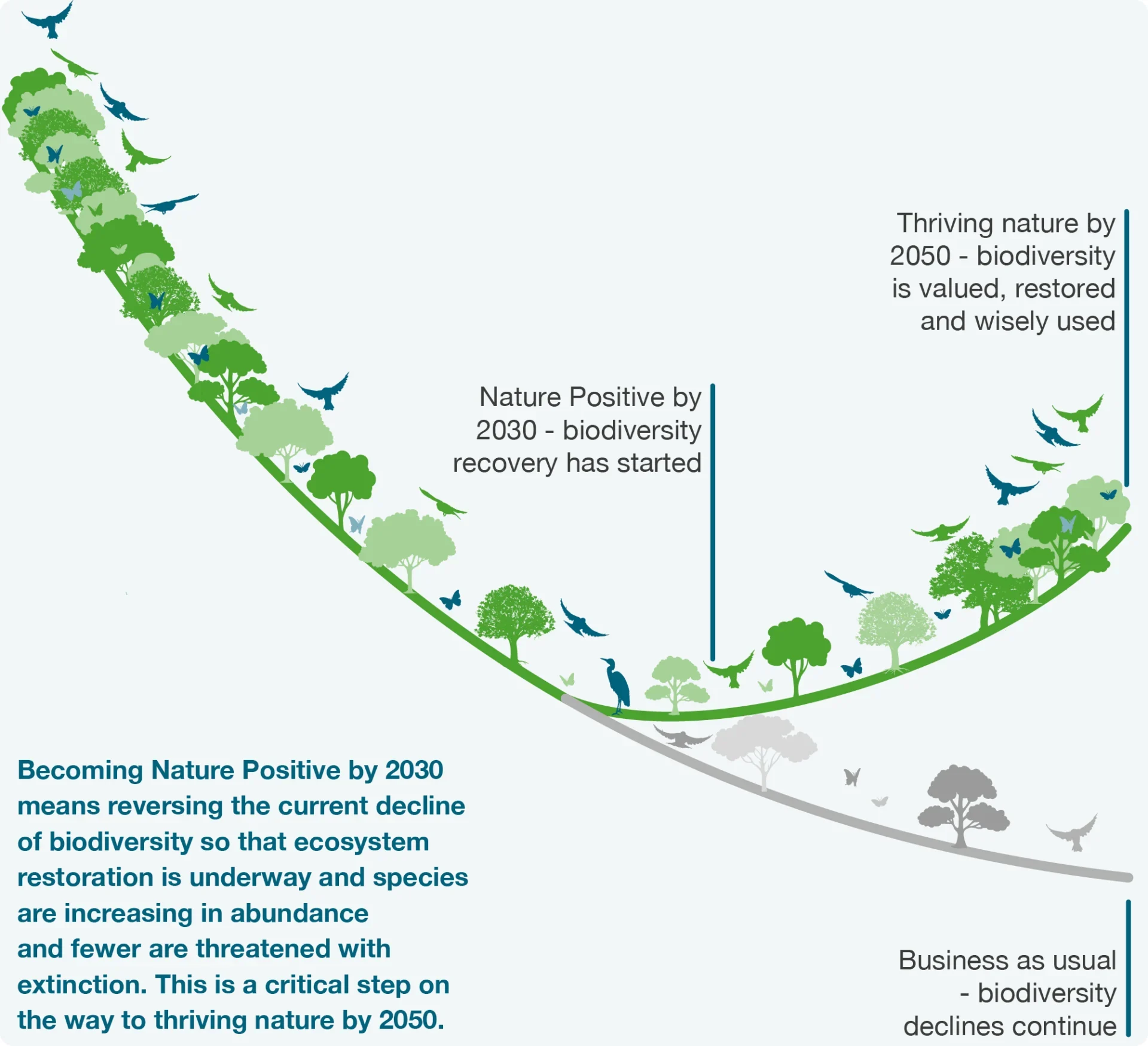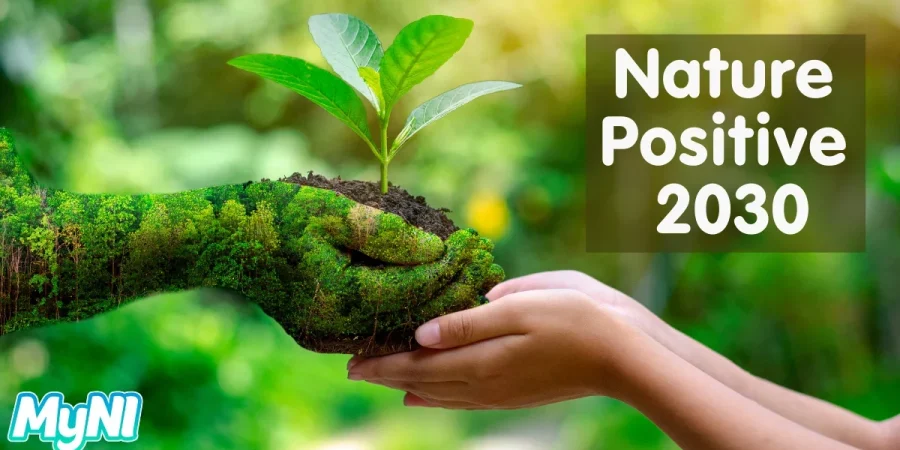What does nature positive mean?
This video explains what nature positive means for us and highlights four examples of inspirational nature recovery projects around the UK, including at the beautiful Garron Plateau in Co Antrim. Credit to Natural England for the video.
Setting out how the UK can meet its commitments in the Leaders' Pledge for Nature
The Nature Positive 2030 Report sets out how the UK can meet its commitments in the Leaders’ Pledge for Nature, and ensure that nature’s recovery plays a critical role in our path to Net Zero.
Findings from the joint report shows that achieving nature commitments will deliver huge benefits to human health, well-being and our economy, and will require transformative change across society and in the way we protect, value, use and engage with nature. The Nature Positive 2030 report draws on a wealth of experience and innovation in the UK to present solutions that can be scaled up to achieve change.
The report showcases the importance of utilising natural solutions to tackle climate change, highlighting the essential role of nature in helping us survive our uncertain future. Delaying action for nature will lead to greater economic costs, and increased environmental risks.
The report also stresses the important role of nature in supporting human health and well-being, as demonstrated through the Covid-19 pandemic.
High nature low carbon
"Nature recovery is within our grasp – we can become Nature Positive by 2030, provided we act now. We need to go high nature and low carbon, tackling the twin crises of biodiversity loss and climate change together, and today’s publication sets out how we can do this".
Tony Juniper, Natural England Chair Tweet
Multi-award winning author and naturalist from Northern Ireland, Dara McAnulty explains why we need to act now to tackle biodiversity loss and climate change.
Priority actions for a nature positive UK

Nature Positive 2030 sets out the priority actions and achievable steps for becoming “Nature Positive” – reversing biodiversity decline – by 2030, and concludes that we are currently not on track to becoming nature positive by 2030, but that this aim is achievable.
The recommended 9 priority actions that can be delivered rapidly, by national and local governments, landowners, businesses and others that will have particularly high impacts on reversing biodiversity loss this decade are listed below:
- Ensuring wildlife thrives within protected areas on land and at sea.
- Better conserve wildlife habitats outside protected areas, in particular those areas identified as parts of nature networks or as important blue/green infrastructure.
- Investing in habitat restoration and creation to strengthen nature networks that deliver for biodiversity and climate change.
- Ensuring outcomes for nature are integrated in development plans on land and at sea.
- Tackling atmospheric and diffuse water pollution, especially from nitrogen and ammonia.
- Developing the market for green finance.
- Deploying nature-based solutions for climate change mitigation by default.
- Developing the UK’s evidence base so that it is ready to support the larger, transformative changes underway.
- Adopting targets to become nature positive.
The importance of reversing biodiversity decline now

Restoring our natural capital is essential for our health, well-being and prosperity
“Healthy nature sustains us. However, our biodiversity is under severe pressure, at a time when we have never been more in need of it to counter the impacts of climate change. “Achieving a nature positive future and restoring our natural capital is essential for our health, well-being and prosperity. We all have a role to play in safeguarding, restoring, and reconnecting with nature. The UK Nature Positive 2030 Report helps show how this can be done. The examples, including those from Northern Ireland, show that positive action is happening and delivering for nature and people. We need to build on and accelerate these actions to ensure that we are building resilient nature for now and for future generations.” The report will support UK activities at international and domestic levels, as we work to achieve ambitious global agreements for climate change and biodiversity at COP26 and COP15, providing the evidence base to demonstrate that the UK is leading by example".
Paul Donnelly, Chief Executive of NIEA Tweet
Inspirational nature recovery projects happening in Northern Ireland
Nature Positive 2030 is a publication by the Joint Nature Conservation Committee, Natural England, Natural Resources Wales, NatureScot and the Northern Ireland Environment Agency.



